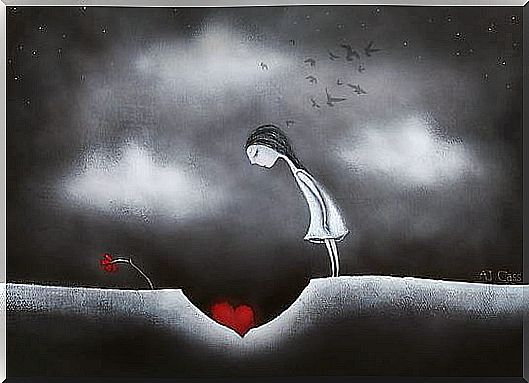Sometimes It’s Not Enough To Be Positive

In addition to being positive, we also need patience and strength to make good things happen. After all, all that is good is worth some waiting time and work.
Most of us have heard of positive psychology. Perhaps we are already using this positive approach in our daily lives, to achieve happiness.
Since psychologist Martin Seligman wrote his book Learned Optimism in 1990, this approach has gained remarkable popularity and relevance in editorial meetings and in the personality development industry.
The most interesting contribution that positive psychology made in its time was to change our focus from our pathological problems to our inner strength.
From there, concepts such as resilience, motivation, gratitude, and emotional intelligence have become incredibly familiar and useful.
But all this, which for a period certainly had influence and relevance, gradually seems to lose just this.
It happens for a simple reason: In the current time of crisis, where it goes up and down both socially and economically, the theory of positivity lacks the brilliance it once had.
It has happened to such an extent that many psychologists and sociologists now believe that it is time to stand on the “dominance” of positivity when it comes to personal development.
But it is not about replacing it, rather about redefining it. At the same time, we must realize that it is not always enough to be positive if things are to get better.
A positive approach can not always guarantee good results

For a long time, positive thinking was the strategy that was to teach us to be happy. Understanding that things like forgiveness, kindness and altruism help us fight negative emotions like anger, rage, sadness…
Many of these thoughts stem from the well-known principle of “changing a thought to change an emotion.”
When we change the fluctuations in our emotions, then we can improve our reality.
Also read: No one can stop you once you find your inner strength
So while this approach seems inspiring, the reality is much more complex. Life has many small nuances, and some of them we have all experienced at one time or another:
- When I go to a job interview, I think positively. I trust myself, and give my best. Positive thoughts do not guarantee a job.
- I have always done my best for my partner. I constantly believed in our life project. I was positive, brave, thoughtful and open. But none of this was enough to make the relationship work.
- I have a good education, got good grades, and have always been at the top of the class… .but none of this has gotten me a good job.
Something we must understand, then, is that being positive is, and always will be, necessary.
But it is also necessary that we learn to deal with the more difficult and complex aspects of our daily lives.
Happiness always has a small “trap” that you must accept and be positive about

Good things do not always happen to the people who deserve it the most. And be still, sometimes it is friends and family who are most kind and generous who end up in the most disgusting situations.
Why is this happening?
It is important to point out that the law of attraction does not always work. It is not enough to want to think, and sometimes not even to act in a certain way, to make what we want happen.
More than positive thinking, we must learn to develop a strong, flexible, courageous and resilient attitude.
Books like “The Trap of Happiness” by Russ Harris explain this in a simple and understandable way:
- The society we live in “sells” us the idea that we must always be positive. That we should surround ourselves with positive emotions and thoughts, and happiness.
- If we allow ourselves to be led by this mindset, we will become so obsessed with being happy that we cannot deal with frustrations, discomfort, or unpleasant feelings.
We can not deny the last point. Not at all when one thinks of the complexity of our current reality. Competitive, changeable and demanding circumstances are part of life. We have to face adversity almost every day.
I accept and understand my negative feelings so I can reinforce the positive ones

I know there will be deadly sick days where nothing goes as it should. Days when we feel rejected. We’re doing things wrong. Days when we lose something. We’re losing it all. Where we, or others, say “goodbye”.
Days when we are forced to be strong, not just positive.
- Knowing and understanding this is necessary for our personal development.
- All who are obsessed with happiness but cannot bear loss, disappointment or sorrow will find it difficult to grow, develop, and achieve inner peace and well-being.
It is not about cultivating pessimism. But about being able to withstand the negative fluctuations that occur in life, and face them. We must get the best out of those moments of emptiness, and overcome them.
We will have to fight for joy, in a more mature, realistic and objective way.
Sometimes it is not enough to be positive for wonderful things to enter our lives.
What comes is not always good. But we have to accept it, and deal with it, so that what we really want can become real later.
Featured image please from WikiHow.com









